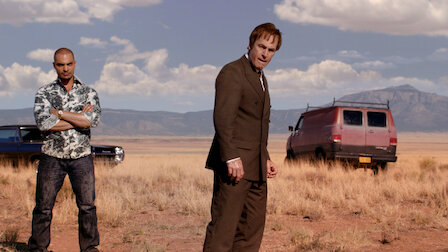
The fallout from that revelation brought Chuck into conflict with the law firm he helped found.
INDEX OF BETTER CALL SAUL S03 LICENSE
The lynchpin of this season came a few episodes back when Jimmy successfully fought off Chuck’s challenge to his law license by exposing his older brother’s electricity “allergy” as mental illness. Most wrenchingly, we saw Jimmy attempt to reconcile with his estranged brother-another difficult, and ultimately futile, attempt to do the right thing. Rival kingpin Gus Fring applied CPR and called an ambulance when Nacho’s scheme began to work, and now the possibility looms of bloody reprisal for Nacho’s attempt at heroism. We also saw the cartel henchman Nacho try to save his father from being pulled into the employ of his vindictive boss Hector-by riskily switching out Hector’s heart medication and waiting for his health to fail. In Monday night’s finale, viewers saw Kim suffer the consequences of hustling to support both her and Jimmy’s dreams-a seemingly noble pursuit that ended in a wreck that could have cost people their lives. It happens through dramatic, unforeseen events in otherwise banal lives: car crashes, flameouts. Change here happens not only through the culmination of small, intentional evils as it did with Walter White. And, more generally, it’s been about the human balancing act between expediency and honor-an act most people, day to day, successfully manage to pull off. It’s been a chronicle of one man’s struggle to survive as a decent person, and about just how difficult it is to do so. The culmination of the Sandpiper saga confirms that Better Call Saul has not been a chronicle of one man’s moral descent, despite initial assumptions that it might follow a similar roadmap as Breaking Bad. He’d done “the right thing,” just as he’d done in Season 1. But the truth was he’d actually made an honorable, personally costly decision. “Shame on you,” one of the women said when he came back in after broadcasting his confession. In a classically Saul-ian scene of goodhearted deception, he led a “chair yoga” class for the elderly then went outside to talk with another lawyer about his scamming of the community, pretending not to realize his mic was still on and everyone inside could hear him. He chose to give up the money and rescue Irene’s social life. He could ruin this woman’s life, or he could fess up to what he’d done-and likely lose out on the $1.16 million. When Jimmy realized that Irene was desperately sad and alone thanks to him, he faced a choice. This resulted in the isolation of the sweet retiree Irene Landry, the representative for the plaintiffs: Jimmy had manipulated her friends into thinking she was greedy and amoral. In order to win that settlement, he’d meddled with the social order amid a group of old women. Jimmy found himself about to receive $1.16 million from a settlement agreement in a class-action lawsuit he initiated on behalf of a group of senior citizens against the Sandpiper retirement-home chain. Part of the episode hinged on an ethical dilemma not unlike the one discussed at the end of the first season. It also seemed to make the subtly radical suggestion that character change shouldn’t be thought of as an arc at all. But the Season-3 finale also highlighted just how slowly, how painstakingly, Better Call Saul has pushed Jimmy along his inevitable arc.

Last night’s third season finale served up a much darker moment of truth: Chuck intentionally set fire to his own house, seeming to signal his suicide and possibly igniting Jimmy’s long-delayed transformation. Yellowjackets Is So Much More Than a ‘Female Lord of the Flies’ Kevin Townsend, Shirley Li, Megan Garber, and Lenika Cruz But the show, somewhat bafflingly, hit the “undo” button on that epiphany for Season Two, sending Jimmy back into the often-tedious world of corporate and elder law while developing his relationship with his hardworking girlfriend, Kim, and his snooty brother, Chuck. When that episode aired in 2015, it seemed like a clear turning point: Jimmy was about to scrap a career as a straight-and-narrow law partner and instead take the more ethically liberate route, transforming into the zany sleaze who viewers came to know on Breaking Bad. “And you know what? It’s never stopping me again.” “I know what stopped me,” he said, before driving off. Why in the world hadn’t they kept it? “I remember you saying something about doing the right thing,” Mike replied. The ever-striving public defender pulled his yellow Suzuki Esteem up to the booth of the parking attendant/fixer Mike Ehrmantraut and recalled to him that they’d both recently had their hands on $1.6 million in stolen cash. The first season of Better Call Saul ended with Jimmy McGill expressing some regrets.


 0 kommentar(er)
0 kommentar(er)
